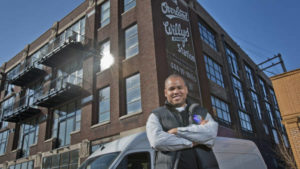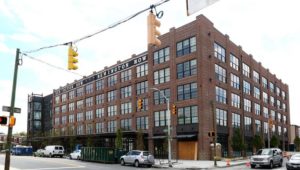Back

Blog
Innovation within the Impact Investing Space is Driving Inner City Revitalization

Impact investing is a double bottom line investment approach that looks to generate a competitive rate of return while investing funds into projects that will have a positive social, economic or environmental impact. There are now at least $114 billion worth of impact investing assets under management, according to a recent survey conducted by the Global Impact Investing Network (GIIN), a group of charities, banks, foundations, insurance companies and asset managers dedicated to increasing impact investing.
The potential for innovation in the impact investing space has made its growth such a game-changer for inner city economies. Two organizations that are leading the way for innovative impact investing in inner cities are the Calvert Foundation and Living Cities.
The Calvert Foundation is considered an impact investing pioneer, directing many of these investments into inner city revitalization efforts. Calvert offers investors opportunities to support their local communities through several innovative investment initiatives. Through these initiatives, Calvert has channeled an estimated $1.5 billion into smaller social and economic development efforts since 1995.
One such program, Ours to Own, offers a low barrier to entry for community members and residents hoping to invest in their community – Ours to Own accepts investments as small as $20. The program is currently active in four U.S. cities: Denver, Minneapolis-Saint Paul, Baltimore and Chicago.
In Baltimore, the Ours to Own program is focused on investing capital in affordable housing, public education, and community development. One of those efforts includes supporting Seawall Development’s mixed-use project along Remington Avenue. Seawall Development acquired nearly two whole inner city blocks with an ambitious strategy in mind. The site – which once included a tire shop, filling station and Walter Shock’s ice house – is located in the midst of row houses, warehouses and autobody shops.

“There’s a sense in Remington you are enjoying something bigger than yourself,” says Matt Pinto, a member of the Seawall team. “There’s a bit of mystery. There’s a bit of grit,” he says, but there’s also “a feeling of authenticity and that things are happening.”
Seawall is now developing a $40 million, 108-unit warehouse style apartment building (pictured above). Next door, the developer is converting an old auto agency into something they’ve named R House, a “new take on an Old World food hall” that will feature local chefs and startups in the food industry. The project, which is located just outside of Johns Hopkins’ Homewood campus, will eventually include a 30,000 sq. ft. health clinic and an office component as well. It is expected to create 200 construction jobs and 165 permanent jobs in a city that has struggled with persistently high unemployment.
Calvert played a critical role in financing the project, through a $2.5 million loan from the Ours to Own program.
Living Cities, a collaborative of foundations and financial institutions, is another organization breaking new ground in the community investment space. Living Cities provides capital to and builds the capacity of local community development corporations.
Living Cities has engaged in several innovative impact investing initiatives in recent years. The organization was previously featured in this blog in regard to another form of social impact investing, Pay for Success, in which investments are paid back by government agencies if the program is successful. Living Cities launched the “Pay for Success Construction Loan,” a new loan program designed to help pay for the upfront costs associated with PFS projects.
In late 2015, Living Cities launched its Blended Catalyst Fund as a way to accelerate its work. The $31 million impact investing debt fund aims to invest in innovative approaches to solving complex urban challenges.
“Capital innovation has always been a key component of our work, underpinned by the knowledge that we cannot ‘grant’ our way out of poverty,” explains Ben Hecht, President and CEO of Living Cities. “We need to find and experiment with new ways to pool and deploy capital to address the most pressing problems facing society today.”
The Blended Catalyst Fund also stands out from other social impact investing funds because of its structure: the fund includes a combination of philanthropic and commercial dollars – and therefore, includes a combination of equity and grants (hence the name “blended”). The dual approach allows Living Cities to make long-term, patient investments in inner city projects while still delivering returns to investors along the way. The Fund provides term loans, lines of credit and equity investments and below-market rates to public, private and nonprofit organizations whose projects are aimed at economic development, income inequality, small business development and other social issues.
“Our grant helps protect Fund investors from financial risk and encourages other institutions to join the Blended Catalyst Fund. Collectively, we can multiply our impact, scale successful models and drive more capital to improve health where there is greatest need,” says Donald Schwarz, Vice President of the Robert Wood Johnson Foundation, which provided a $2 million grant for loss protection for the Fund’s investors.
Initial investments included a $1 million loan to the Detroit New Economy Initiative Fund, a program sponsored by a local community foundation that will make loans to entrepreneurs and small business owners in and around Detroit who traditionally lack access to mainstream capital. The Blended Catalyst Fund has also committed $3.5 million to the Regional Equitable Development Initiative Fund. This investment will help support the creation of affordable, transit-oriented housing for low-income residents in greater Seattle.
As impact investing continues to expand as a means for supporting urban economic development, innovators such as Calvert and Living Cities will play an important role in advancing the flexible strategies necessary to ensure that inner city communities can access the financial support that they need.
